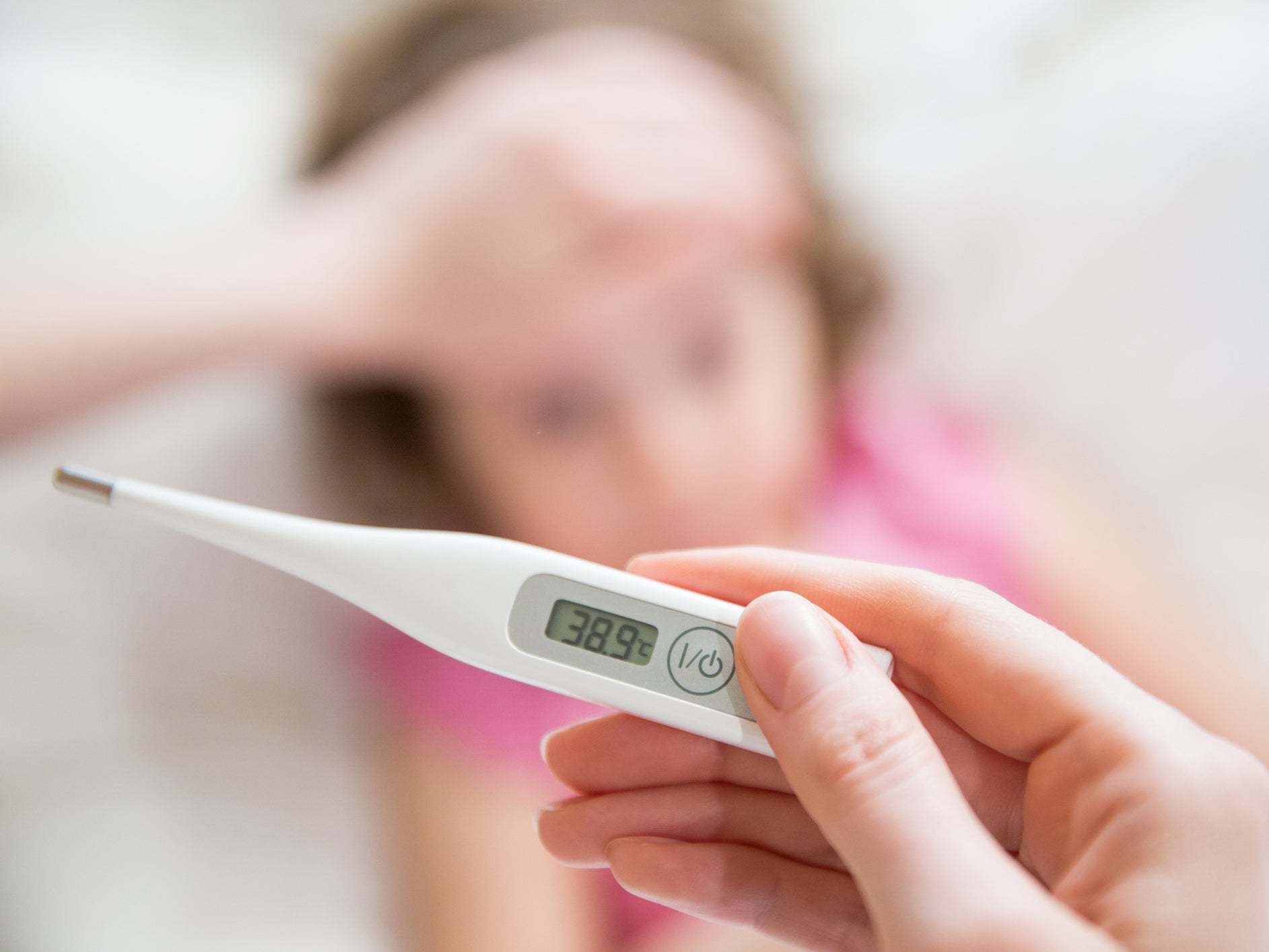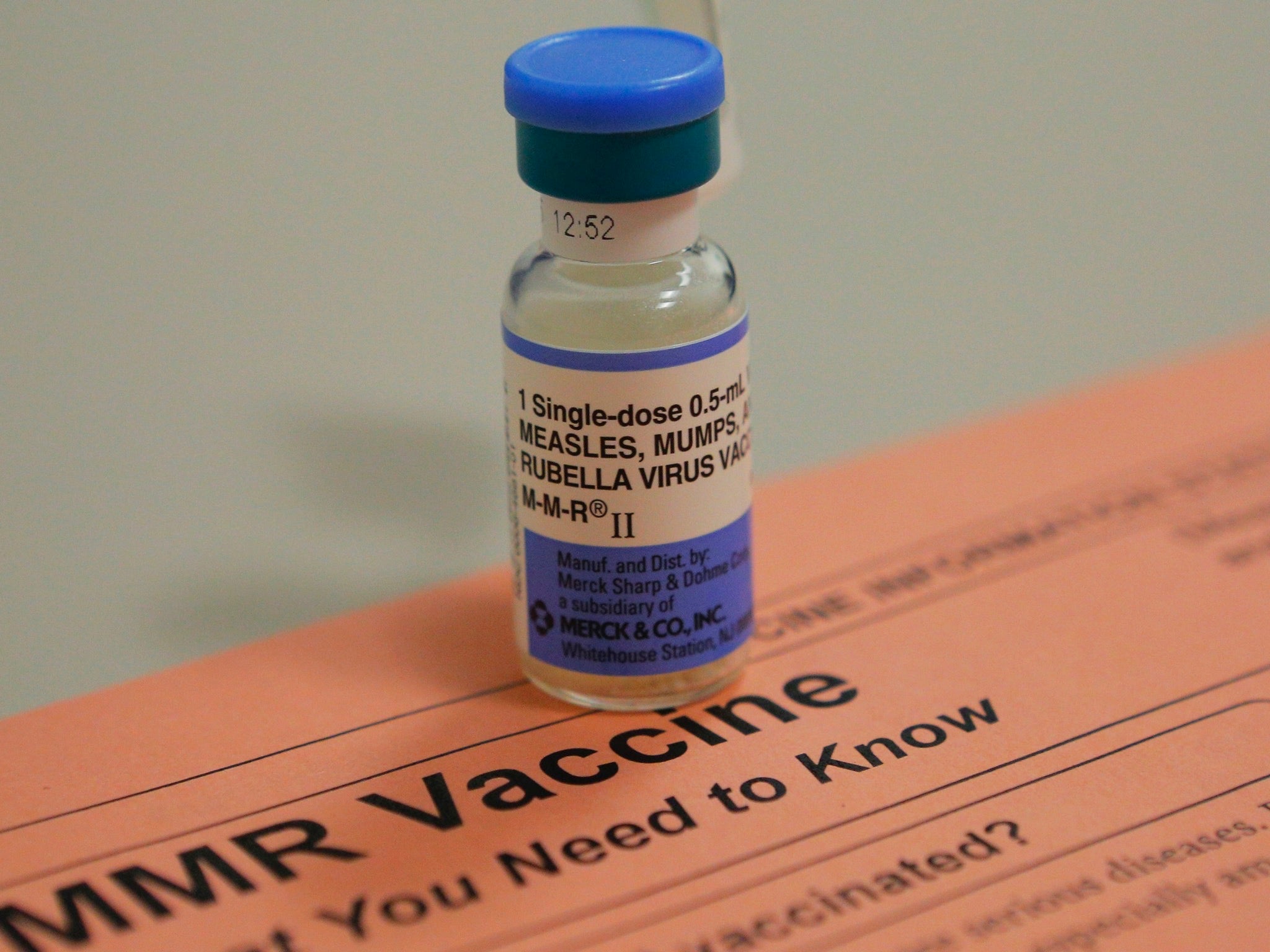Measles kills 35 people in Europe as disease spreads through un-vaccinated children, warns WHO
Majority of fatalities in Romania, which has seen a 'substantial drop in immunisation coverage'

There were 35 deaths caused by measles in European countries in the last year – an “unacceptable tragedy”, according to the World Health Organisation (WHO).
Despite the availability of a safe, effective vaccination, measles outbreaks are continuing to spread across Europe, warned the agency.
The majority of fatalities were in Romania, where 31 people have died after catching the infectious disease, which causes sore eyes, rashes and cold-like symptoms and can lead to serious complications such as ear infections, pneumonia, and deafness.
Since June 2016, there have also been two measles-related deaths in Italy, including the most recent victim of the disease, a six-year-old boy, while local health authorities in Germany and Portugal have each reported one fatality.
Dr Zsuzsanna Jakab, the WHO’s regional director for Europe, said “every death or disability caused by this vaccine-preventable disease is an unacceptable tragedy”.
“We are very concerned that although a safe, effective and affordable vaccine is available, measles remains a leading cause of death among children worldwide, and unfortunately Europe is not spared.
“Working closely with health authorities in all European affected countries is our priority to control the outbreaks and maintain high vaccination coverage for all sections of the population.”

French Prime Minister Édouard Philippe announced last week that parents in France will be legally obliged to vaccinate their children from 2018.
He said it was “unacceptable” that children are “still dying of measles” in the country where some of the earliest vaccines were pioneered.
All the vaccines which are universally recommended by health authorities – 11 in total – will now be compulsory in France.
The move follows a similar initiative in Italy, which recently banned non-vaccinated children from attending state schools.
Anti-vaccine movements, whose followers are known as anti-vaxxers, are believed to have contributed to low rates of immunisation against the highly contagious disease in a number of countries.
In 1998, the British doctor Andrew Wakefield published a controversial and since-discredited study in The Lancet, which purported to show a link between the MMR vaccine – for measles, mumps and rubella – and autism in children.
Exhaustive scientific research, including a comprehensive 2014 review using data from more than 1.2 million children, have since concluded that no relationship between vaccination and autism.
Dr Wakefield was struck off the medical register after his report was found to be fraudulent.
However, many parents still choose not to vaccinate their children, with around 24,000 children in England each year at risk of measles, mumps and rubella because they have not been immunised against the diseases, according to Public Health England.
It is recommended that at least 95 per cent of the population is vaccinated against measles to ensure good protection against outbreaks of the disease.
But coverage is estimated to be lower than this in France, Germany, Italy, Poland, Romania, Switzerland and Ukraine.
While measles is no longer endemic in 37 European countries, according to the WHO, “remaining pockets of low immunisation coverage allow the highly contagious virus to spread among those who choose not to vaccinate, do not have equitable access to vaccines or cannot be protected through vaccination due to underlying health conditions”.
A recent survey found more than three out of 10 French people don’t trust vaccines, with just 52 per cent of participants saying the benefits of vaccination outweigh the risks.
And just 85.3 per cent of Italian two-year-olds were given measles vaccinations in 2015, down from 88 per cent in 2013.
Isabelle Sahinovic, the WHO’s Vaccine Safety Net co-ordinator, has said that “dangerous” misinformation about vaccines continues to spread online.
“Every day, misinformation about vaccines continues to proliferate on the internet,“ she said. ”This is dangerous.
“We need to make sure that all parents, caregivers, and healthcare professionals can easily access accurate and trustworthy information about vaccines.“
In Romania, where under 80 per cent of the population are vaccinated against measles, according to the Health Minister, anti-vaccination campaigns have been led by religious organisations and public figures.
Romanian celebrity Olivia Steer, a former TV presenter, has called vaccines a “myth”, stating on television that they are not necessary and can cause health problems including autism.
Poverty and lack of access to health services could also be behind increased outbreaks of measles in the country, with the WHO warning of “the largest measles outbreak recorded in recent years in the country”.
“Romania is facing critical vaccine shortages or delays, including of the measles, mumps and rubella vaccine, along with a substantial drop in immunisation coverage,” the organisation said.
Join our commenting forum
Join thought-provoking conversations, follow other Independent readers and see their replies
Comments
Bookmark popover
Removed from bookmarks